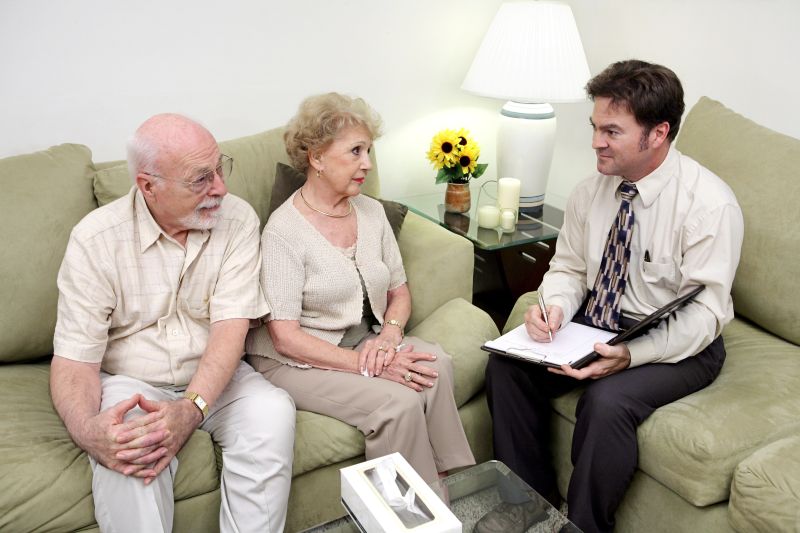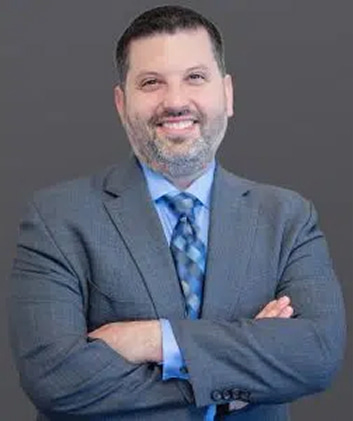Takeaways:
A Florida living will outlines future medical preferences if you’re incapacitated, while a Do Not Resuscitate Order (DNR) is a physician-signed directive preventing CPR in a medical emergency. DNRs are immediate-use orders for EMS or hospitals. Living wills guide broader care decisions over time. Boca Raton residents should understand when and why to use both.

When it comes to end-of-life planning, two documents can be confusing: the living will and the Do Not Resuscitate Order (DNR). While they both express your medical wishes, they serve very different purposes.
Florida law treats them as separate tools, with different formats, triggers, and legal effects. If you live in Boca Raton and around Palm Beach County, here’s what you need to know to protect your rights and plan responsibly.
What Is A Living Will In Florida?
A living will is a legal document that spells out your choices for life-prolonging care if you’re incapacitated. It guides doctors and family when you can’t speak for yourself.
Under Florida law, a living will applies when you’ve been diagnosed with a terminal condition, end-stage illness, or are in a persistent vegetative state. Two physicians confirm your incapacity and medical condition.
Florida Statutes Chapter 765 authorizes living wills and outlines the rules for creating, activating, and following them. It ensures your decisions about medical care are respected, even when you can’t voice them directly.
Key Characteristics
A living will only takes effect when you’re unable to make your own medical decisions. Florida law requires two physicians, your attending doctor and an independent consulting physician, to confirm your incapacity and qualifying condition.
The document can address many treatments, including artificial feeding, hydration, and the use of ventilators. You can also personalize it with specific instructions that reflect your values, religious beliefs, or comfort-focused care preferences.
Execution Requirements
To be valid in Florida, you must sign your living will. Two adults must stand as witnesses, one of whom is not a spouse or relative. Notarization isn’t required, but recommended.
Your living will acts as a roadmap for future decisions, not a stop sign for emergency care.
What Is A DNR Under Florida Law?
A Do Not Resuscitate Order (DNR) is a physician-issued medical order that instructs healthcare providers not to perform cardiopulmonary resuscitation (CPR) if your heart stops or you stop breathing.
Authorized By: Florida Department of Health Form DH 1896.
Key Characteristics
A Florida Do Not Resuscitate Order (DNRO) is for urgent, often out-of-hospital situations, like at home or in transit. It tells first responders not to perform CPR if your heart stops.
Unlike a living will, which may include broader care preferences, a DNRO applies strictly to cardiopulmonary resuscitation. It’s recognized by emergency medical services (EMS), hospitals, and long-term care facilities throughout Florida.
However, it doesn’t impact other treatments, such as pain relief, oxygen, or feeding. Its sole focus is on preventing unwanted resuscitation, not withholding comfort or basic care.
Execution Requirements
To be valid, a patient(or their authorized legal representative) and a licensed Florida physician must sign the Florida DNRO. It confirms a mutual decision not to administer CPR under any circumstances.
Importantly, you must print the form on yellow paper and keep it in plain sight or on the person. For example, on the refrigerator or in a medical bracelet. If it isn’t visible, EMS is legally obligated to attempt resuscitation.
If you collapse at home and EMS arrives, only a DNR will stop resuscitation attempts, not your living will.
Key Differences Between Living Wills & DNRs
| Feature | Living Will | DNR (Do Not Resuscitate) |
| Purpose | General instructions for end-of-life care. | Immediate refusal of CPR during an emergency. |
| When It Applies | When you are incapacitated + meet 1 of 3 medical conditions. | At the moment of cardiac or respiratory arrest. |
| Who Signs It | You + two witnesses. | You (or a surrogate) + a physician. |
| Recognized By EMS? | No | Yes |
| Scope | Addresses life support, hydration, and nutrition. | Covers only CPR. |
| Form Required? | No set form, but Florida-specific versions exist. | Florida Department of Health Form DH 1896 (yellow). |
| Notarization Needed? | Optional. | Not applicable; physician signature required. |
Both tools are legal, but they’re not interchangeable.
When You Might Use A Living Will
Living wills are useful for outlining your care preferences if you become unable to speak or decide for yourself.
Examples
- Advanced Alzheimer’s or late-stage dementia.
- Coma or stroke with no expected recovery.
- Diagnosis of incurable cancer with terminal progression.
Instructions May Include
- “No feeding tube if I am permanently unconscious.”
- “Provide pain medication even if it shortens my life.”
- “Remove life support if there is no chance of meaningful recovery.”
Who Uses This
Patients of all ages preparing for unexpected health events. It also includes older adults who want to spare their families from difficult decisions. Lastly, Boca Raton residents updating their estate plans.
Your living will reflects long-range thinking, not just emergency preferences.
When You Might Use A Florida DNR
DNRs are immediate-use directives for those with frail health or terminal diagnoses who wish to avoid CPR.
Examples
- Hospice or palliative care patients.
- People with advanced heart or lung disease.
- Elderly individuals who do not want aggressive resuscitation efforts.
- Patients with terminal cancer nearing the end of life.
Important Considerations
- CPR can cause broken ribs, internal bleeding, and further suffering in fragile patients.
- DNRs are often used when comfort, not cure, is the priority.
Who Uses This?
- Seniors under hospice care in Boca Raton.
- Residents of assisted living or skilled nursing facilities.
- Anyone with a poor prognosis who wants to avoid resuscitative trauma.
A DNR ensures your final moments are peaceful, not panicked.
Can You Have Both A Living Will & A DNR?
Yes, and for many Florida families, having both provides the strongest protection and clarity.
Why Use Both
The living will covers broader decisions over time, while the DNR handles the emergency moment (cardiac arrest or respiratory failure). Together, they ensure your preferences are respected, whether care is long-term or immediate.
Local Tip:
Hospitals in Boca Raton, like Boca Raton Regional Hospital and Delray Medical Center, respect both, but require each document to be in proper form and on file.
What To Do
Discuss both documents with your physician and estate planning attorney. Then, store each in accessible, known locations. Carry a DNR card or wear a DNR bracelet if applicable.
Double coverage = double peace of mind.
Risks Of Confusion Or Incomplete Planning
Mistaking one document for the other, or having only one, can lead to unintended consequences.
Real-Life Scenario In Palm Beach County
A Boca Raton man had a detailed living will but no DNR. After collapsing at home, paramedics performed CPR despite his long-term hospice enrollment. The family was distraught, but EMS had no legal alternative.
Avoid These Issues
Don’t assume your living will stops emergency procedures. Also, don’t rely on verbal instructions; use proper legal forms. Keep both documents updated and accessible.
Confusion delays care. Clear documentation directs it.
How To Talk To Your Doctor About DNRs & Living Wills
One of the most important, but most overlooked, steps is discussing your choices with your healthcare provider. These conversations ensure your directives align with your current health and medical realities.
Why This Talk Matters
Your doctor can help assess whether a DNR is medically appropriate. They’ll explain what treatments a DNR stops, and what it doesn’t. They can help ensure your living will uses language that healthcare teams will follow. Only a licensed physician can legally sign a Florida DNR (Form DH 1896).
Tips For Starting The Conversation
Bring a copy of your living will to your next appointment. Say: “If I’m ever in a situation where I can’t decide for myself, I want to make sure this is clear.” Ask if your provider’s office can scan the documents into your patient chart.
In Boca Raton, proactive dialogue with your doctor helps ensure your legal wishes become a medical reality.
Questions About Living Wills & DNRs In Florida
Many people confuse living wills and DNRs or wonder whether they need both. These common questions clarify how each works under Florida law and when to use them.
Is A Living Will The Same As A DNR?
No. A living will is a legal document guiding future care. A DNR is a medical order that stops CPR in an emergency.
Can I Refuse CPR Without A DNR?
Not reliably. EMS and hospitals will default to life-saving efforts unless a DNR is present.
Does A Living Will Automatically Include A DNR?
No. A living will and a DNR must be created and signed separately. A DNR must be on Florida Form DH 1896.
Can I Change My DNR Or Living Will Later?
Yes. Both documents can be revoked or revised at any time while you are mentally competent.
Should I Have A DNR If I’m Healthy?
Not usually. DNRs are for those with serious illness or who are nearing the end of life.

The right document at the right time makes all the difference.
Let Us Help You Create The Right Plan
Your end-of-life choices deserve clarity and respect. Knowing the difference between a living will and a DNR is the first step. However, making sure both are properly prepared and stored is what protects you.
At Boca Raton Probate Attorneys, we help families across Palm Beach County create customized, legally compliant living wills. We also coordinate with your physician to ensure proper handling of DNRs.
Talk to us today and let us help you build a healthcare directive plan that gives you peace of mind. It also gives your family clear guidance when it counts.




